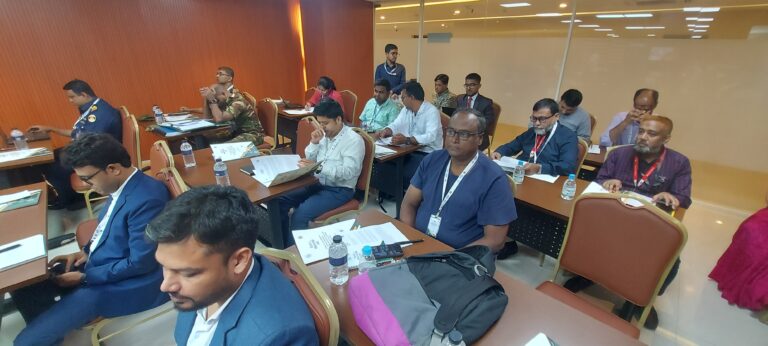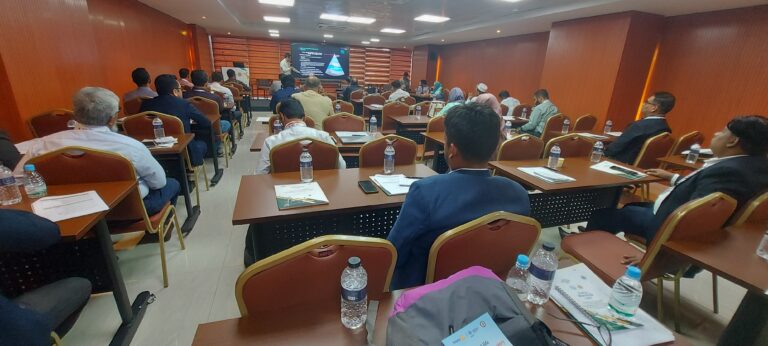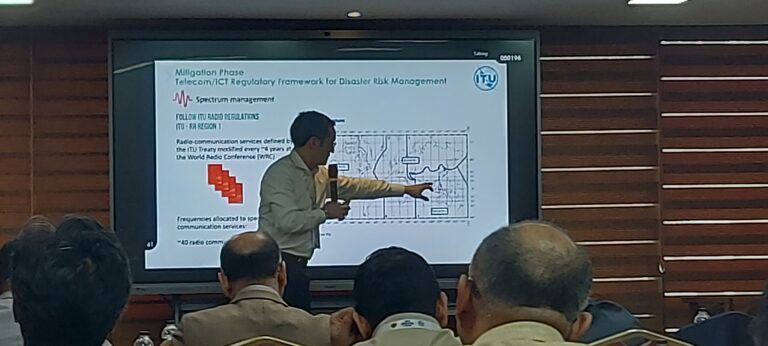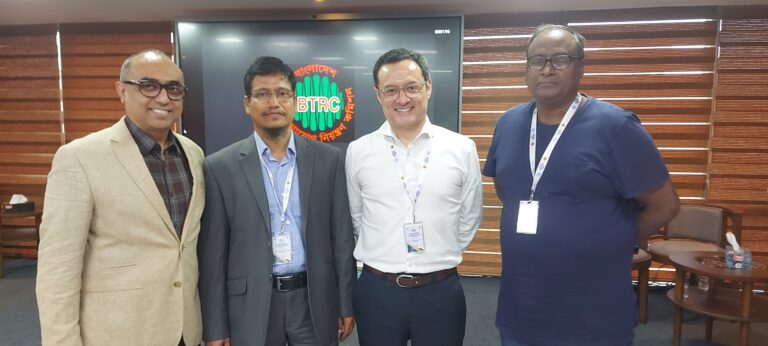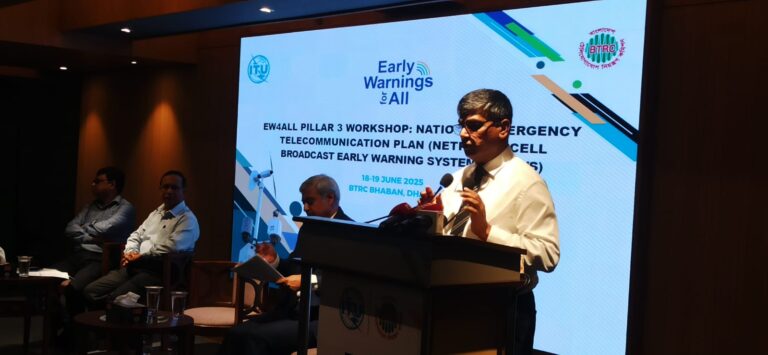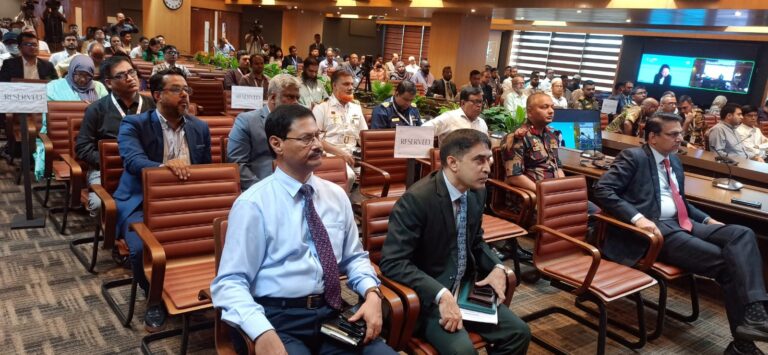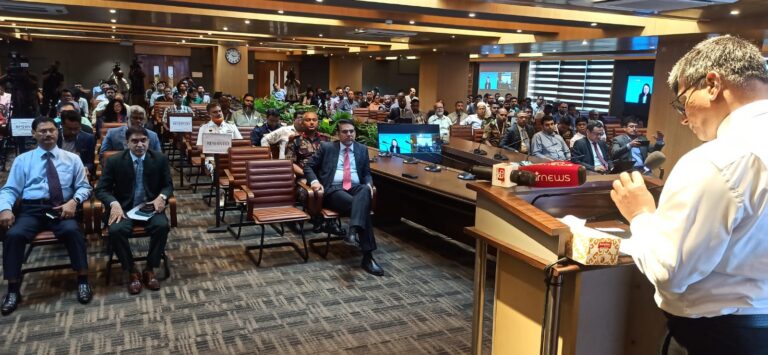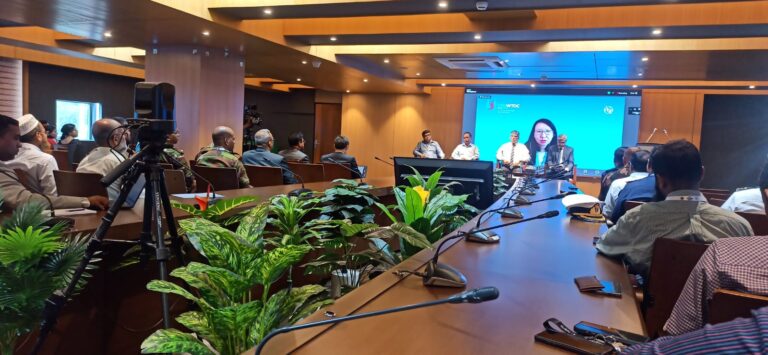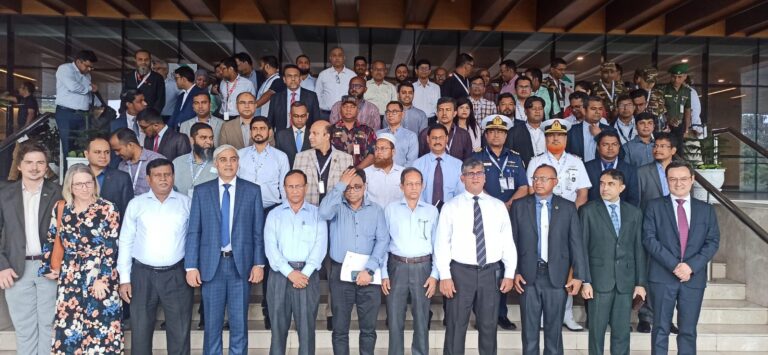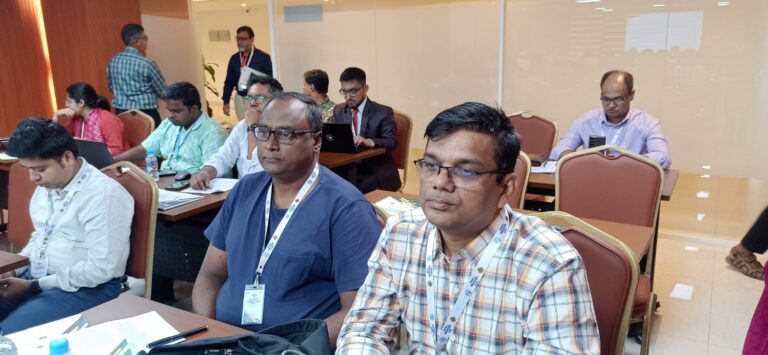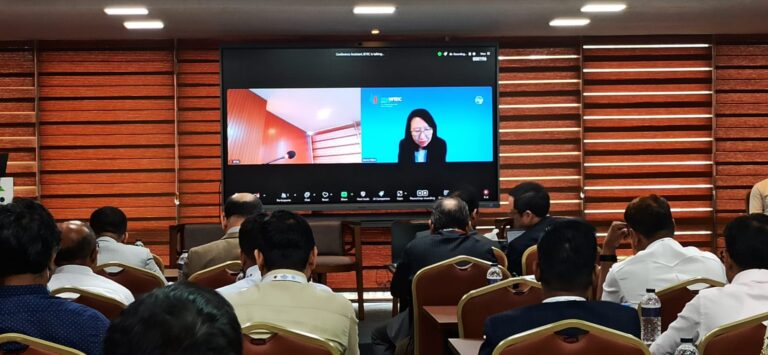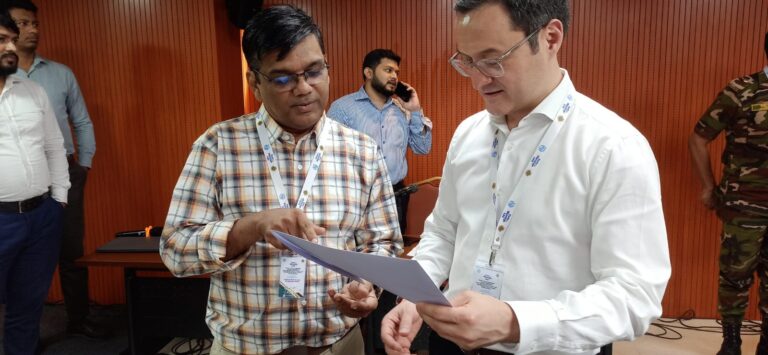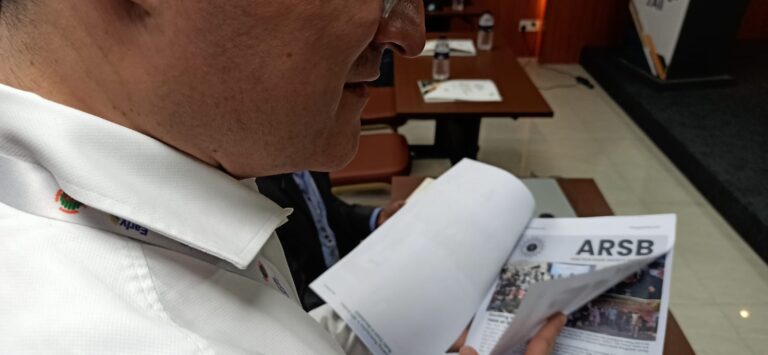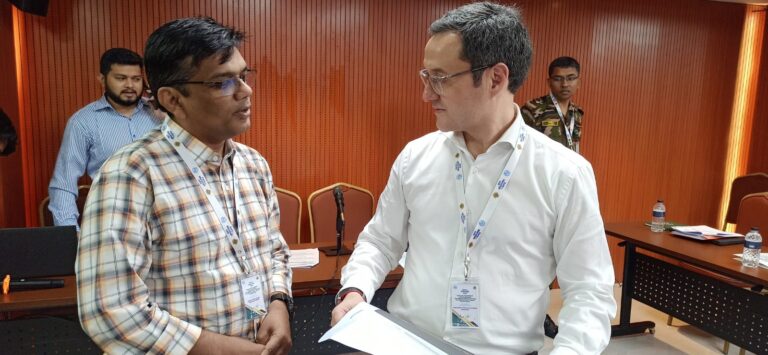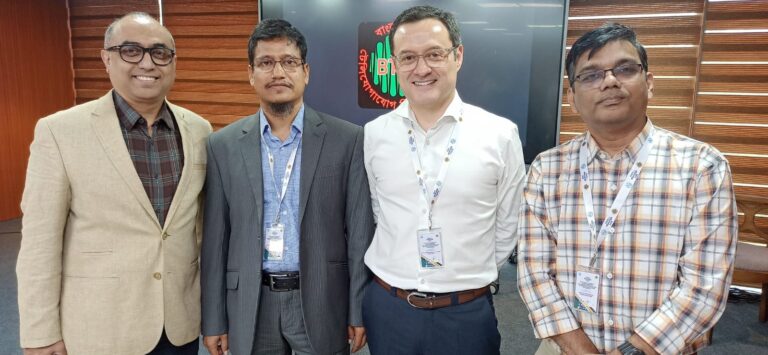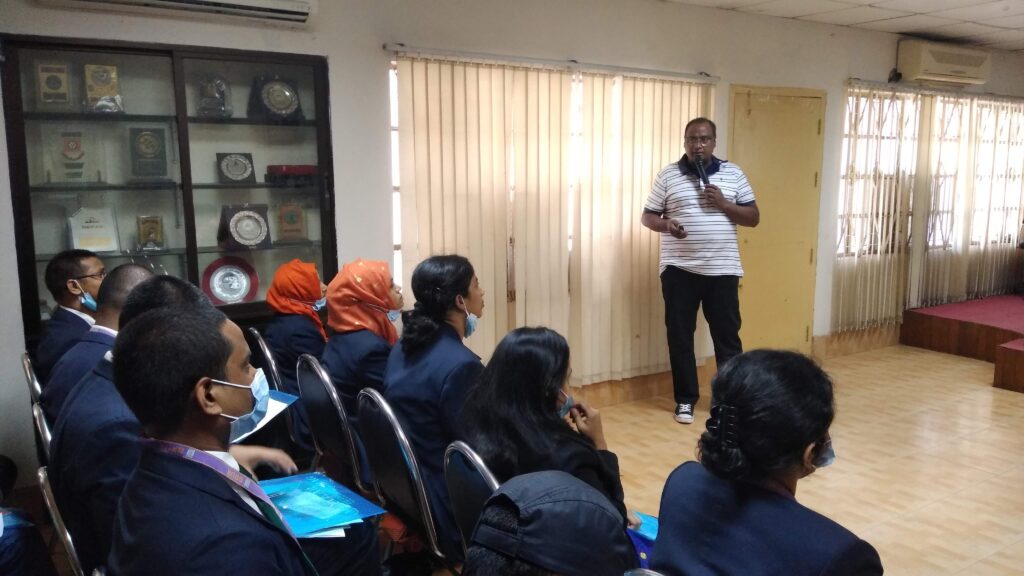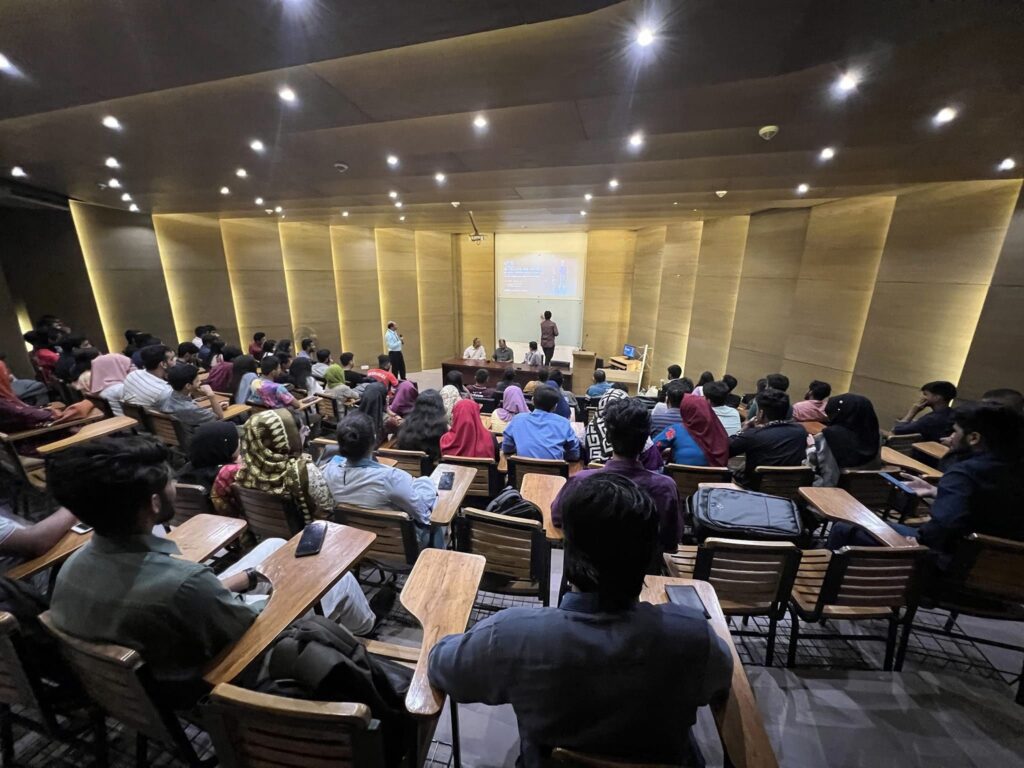EW4All Pillar 3 workshop organised by ITU
Emergency telecommunications and information and communication technologies (ICTs) are critical for disaster management and risk reduction. They are essential for monitoring underlying hazards and for delivering vital information to all stakeholders, including the most vulnerable societies at risk.
To leverage the power of ICTs for disaster management, national and international strategies must be put in place. National policies, procedures and governance that enable the use of reliable and resilient ICT networks, services and platforms are required in the four phases of disaster management: Mitigation, preparedness, response, and recovery. These procedures allow for information sharing across all levels of government, within communities, and between public and private organizations. Information sharing is foundational for building resilience to disasters.
As the UN specialized agency for information and communication technologies, the International Telecommunication Union (ITU) leads Pillar 3 of the Early Warnings For All (EW4All) initiative, focusing on warning dissemination and communication. Pillar 3 is structured around four main outcomes: Governance, Infrastructure networks and services, Inclusion and people-centred approaches, and Quality and trust.
The ITU is supporting Bangladesh Telecommunication Regulatory Commission (BTRC), the national Pillar 3 lead, on prioritising the development of an NETP framework and providing an assessment on early warning system (EWS) focusing on cell broadcast for implementation in Bangladesh.
Workshop Objectives: The overall objectives of the workshop include:
1. Early Warning for All initiative (EW4All): discussion on the
EW4All Pillar 3 workshop organised by ITU
Pillar 3 Roadmap for Bangladesh to ensure alignment with national priorities and stakeholder contributions
2. National Emergency Telecommunication Plan (NETP): consider the telecommunications industry’s state of readiness and involvement in disaster management and review the draft NETP framework, recommendations and action plan, and develop an implementation plan for the NETP.
3. Early Warning Systems based on mobile networks: provide an overview of the key mobile early warning technologies to implement a geo-located mobile early warning system.
4. Cell Broadcast–enabled Early Warning Systems (CB EWS): understanding of the capabilities and benefits of using cell broadcast technology for disseminating early warnings and emergency alerts, and the implementation in Bangladesh.
5. Legal and regulatory framework: analysis of the legal and regulatory frameworks for the implementation of CB EWS in Bangladesh.
Participation of Amateur Radio Society Bangladesh (ARSB)
The EW4All Pillar 3 Workshop also welcomed representatives from the Amateur Radio Society Bangladesh (ARSB), highlighting the inclusive nature of the event and the recognition of diverse stakeholders in emergency communication strategies.
Official Invitation
The ARSB was officially invited to participate in the workshop, reflecting the important role amateur radio operators play in emergency telecommunications. Their involvement is crucial for ensuring robust communication networks during crises.
ARSB Representatives
Nazrul Islam S21NZ, Vice President of ARSB, attended the workshop.
Shamsul Huda S21HD, Organizing Secretary of ARSB, also joined the event.

